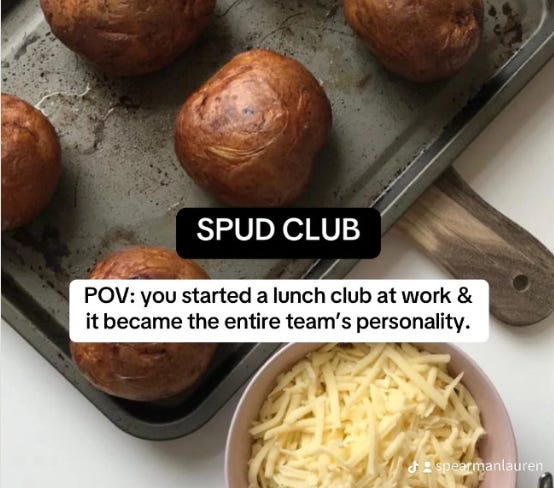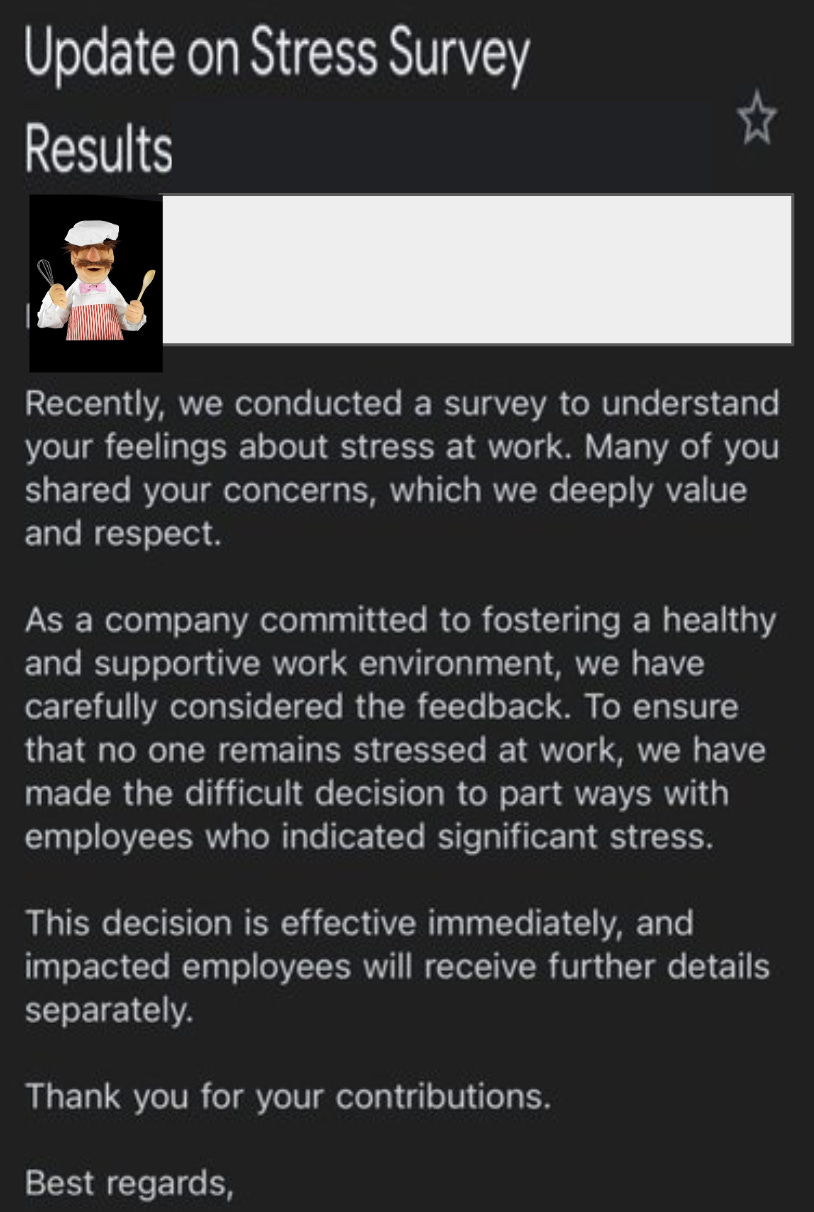A couple of weeks ago I spent a long time going through trend decks for 2025. You won’t be surprised to hear that AI featured in almost all of them. But interestingly what came up was that a lot of workers don’t feel that their company has a coherent plan for how to use the new technology.
We’re in the Bit Torrent era of AI right now. Maybe you were one of the internet users who learned the dark arts of downloading movies and music via Torrenting. Yes, I know it was piratical and illegal but it was also pretty common for a lot of people. To a music obsessive the hard work paid off and it used to deliver new music weeks before it hit the shelves of HMV.
However most people found there was too much faff involved and it took the advent of slick consumer products like Netflix and Spotify to make downloading movies and music mainstream. So it is with AI today, lots of us have had a go on Chat GPT but we wouldn’t soak up hours of work time playing around with it. The vast majority of university students use it all the time, only a third of us use it in our jobs.
And the tech definitely isn’t the finished article, last week I asked Google's Gemini Advanced, the paid product, to conduct some academic research for me, asking it to provide proof that what it was recommending was true. Despite the cautionary briefing 7 out of the 9 papers it recommended to me were made up. When I expressed disappointment and repeated the exercise it achieved the same result, different papers but same level of invention.
I changed the brief and asked again, this time Gemini seemed to be offering to work in an agentic way, saying the research would take a couple of days. Two days later I checked in and it sent me a few files from my own Google Drive. Wonky face emoji.
But that is nothing compared to what happened to David D'Souza from the CIPD. He asked Gemini Advanced to do some research for him, he was told it would take time.
When he checked back in Gemini claimed to have had a lovely time going to visit a museum to conduct research in person. Fingers crossed no expenses claim is incoming.
2025 will no doubt see a lot more stories like the Klarna headlines about AI replacing 700 customer service agents and our bosses will be anxiously wondering if they’ve left it too late. We’re about to leave the Bit Torrenting era of AI and we’re going to see a lot more use of it in 2025.
I joined the aforementioned David D’Souza on the CIPD People Pod to talk youth employment, predictions for 2025, the HR take on Christmas Parties and ‘malicious compliance’. It’s a really good listen:
For all the talk of AI I’m certain that the future of work is human-shaped. And to support that I’m always keen to hear teams rituals that help foster culture. In the past I’ve done a couple of podcasts on things like Crisp Thursday, Ten at Ten and Pizza Meetings. Last week reader Georgina Armstrong forwarded me details of Spud Club. The creator of Spud Club Lauren Spearman says she ‘started a lunch club at work and it became the entire team’s personality’.
In an approach that was Cost of Living Crisis coded before Liz Truss even dreamed up her Mini-Budget every Monday a member of Lauren's team at Benefit Cosmetics would bring in enough potatoes to bake and feed the rest of the 6 person team (plus occasional honorary guests). Clearly potatoes are a relatively affordable lunch and whoever’s turn it was was free to offer toppings and fillings of their choice. This gave scope for some expression and creative flair, surprise servings included Indian and Italian flavours alongside the traditional cheese and beans.
Lauren says, ‘It’s absolutely ridiculous for a jacket potato to feature in one my favourite memories of my career’ but she says it seemed to create a really authentic way for the team to connect. As they were in the office on Monday it built camaraderie in the form of ‘a chance for us to debrief on the weekend’ and chase away the Sunday Scaries.
So often when we hear about eating lunch together it sounds like the sort of thing that needs high budget or is just for big corporates. Spud Club reminds us that eating together is first and foremost about the coming together. Check out Lauren’s other marketing and careers content on TikTok.
Get in touch if you have a food or drink related ritual and I’ll give it a shout out.
Over the course of the last year I’ve spent over 400 hours preparing this newsletter - I don’t charge for it and make no money from it. If you’ve enjoyed it I’d love it if you could share it to a work Teams/Slack channel as a supportive toot of the horn. Maybe post it to LinkedIn, fax it to a family member, scribble it on a Post-It note or push it under the next toilet cubicle. Any support is almost certain to be blessed with a lifetime’s good karma.
A Goldman Sachs banker who was told ‘you’re a grown man’ when he confessed struggling with worklife balance during Covid won a £3.8m lawsuit against his dismissal. He’d also been told not replying to an email for 24 hours during a holiday had been a strike against him.
Does Britain have the highest economic inactivity levels in Europe? Well according to John Burn Murdoch in the FT the issue is more about misrepresentative data than inactivity. That and the fact that the test for Invalidity Benefit shifted from in-person to online. A very worthwhile read.
15% decline in burnout, 8% drop in stress and a 20% drop in sleep problems: workers doing a four-day week had lower stress levels and better sleep quality. ‘These are key actors that influence long-term health outcomes with the potential to extend life expectancy’. But the routine was hard to accommodate in a customer service business and so the firm dropped it.
A couple of weeks ago I cited a report saying that AI had been more accurate than doctors at diagnosing illness. Reader
gets in touch to say that there’s been some quibbling & questioning about that finding.Economists will know that wage growth typically only happens when labour has power, on that basis RTO mandates (which are equivalent of offering less pay) are a sign that employers currently have the upper hand.
When I chatted to culture consultant Colin Ellis on Eat Sleep Work Repeat I asked him what work he did with teams to change their culture. Shout out to him for making his podcast this week a full breakdown of his process that we could attempt with our own teams.
Brilliant read: conductor John Eliot Gardiner only hit one colleague, once, and it was a hot evening, can he be forgiven? (HT the brilliant Per Diem newsletter)
Off topic but I loved this one on love: are you looking for love in the wrong place? We think we want passion and to ‘fall in love’ but actually being a best friend is more potent as the basis of long-term happiness
Turns out this was true (employees were sent a survey asking if they were stressed):
Article on the initial act which was at an Indian start-up.
Attempted reverse ferret is especially unconvincing.
The firm tried to do a completely disingenuous ‘PSYCH! We got you!’ The only thing that is left unexplained by their statement is any reason at all why a HR leader would do this as a PR exercise.
I chatted to Professor Michael Morris whose book Tribal was shortlisted for the FT Business Book of the Year - finally losing out to 'Supremacy' by Parmy Olson.
He tells me why thinking about group connection is vital to restoring team bonding. I found the reflections on peer codes, hero codes and ancestor codes especially insightful.
Star pupils can find a transcript on the website.









